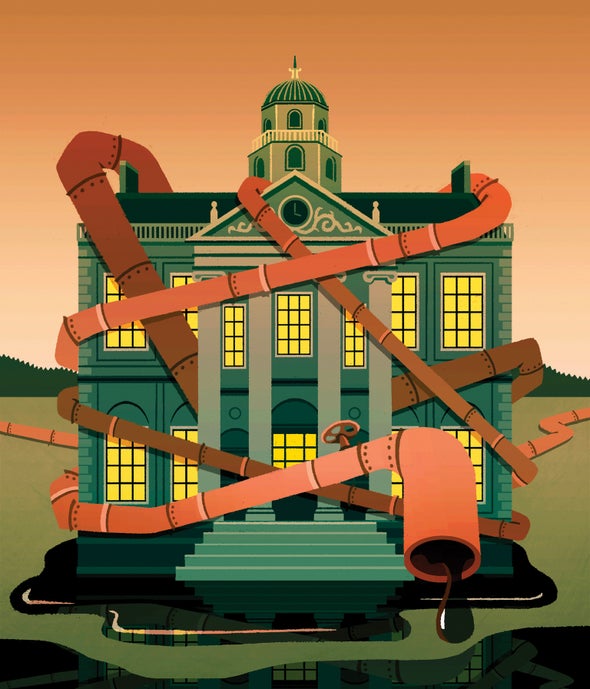Stanford University is betting big on Earth's future. It is launching a giant new initiative, the Doerr School of Sustainability, that was kick-started with a $1.1-billion donation by Bay Area venture capitalists John and Ann Doerr.
With that kind of money, you might think the Stanford school could easily protect its integrity and independence by declining money from the businesses that have done more than any other to threaten planetary stability: the fossil-fuel industry. This is what many faculty, students and alumni would like it to do. But the dean-elect, Arun Majumdar, has said industry gifts are welcome.
Majumdar previously led the Stanford Precourt Institute for Energy, which has long accepted fossil-fuel money, including a $20-million grant from Shell in 2019. Like administrators in other universities (including my own), Majumdar insists that we must “engage” with the very industry that gave us the climate and sustainability crisis.
Many university leaders hold the view that “there's no such thing as tainted money, except ‘'t'ain't enough.'” If the money is put to good use, they suggest, it doesn't matter where it came from. But “good use” is precisely the issue. Funding strongly influences what kinds of scientific questions are asked and what kinds of answers are deemed plausible, credible and worthy of further pursuit. Ample scientific evidence demonstrates that the interests of funders influence academic findings, even when researchers strive to be objective. The clearest example is tobacco, where studies funded by the tobacco industry are much less likely to find clear evidence of harm than independent studies. This is why many prominent medical journals do not accept papers with tobacco funding.
It's not just that individual studies get biased. Entire research programs are framed in ways that are consistent with what funders are interested in and are likely to fund in the future. Stanford historian of science Paul Edwards has called this “mutual orientation.” He showed how scientists who worked closely with U.S. Air Force sponsors came to internalize their patron's concerns, and these concerns guided their investigations. My own work on U.S. Navy funding of cold war oceanography confirms this pattern: projects perceived as low naval priorities were simply not pursued. (One of these was research into human-made climate change.)
My point here is that funding doesn't just influence what we do, it also influences how we think. Navy support of marine science led to an expansive understanding of the ocean as a physical medium—a better grasp of currents, marine sound transmission and deep-sea geology. But it also pushed marine scientists to look at the ocean as a place of warfare rather than an abode of life. The way we think depends in part on the company we keep.
This is where Stanford is going wrong. The fossil-fuel industry and its allies have worked to confuse the American people about the reality and severity of climate change. They have attacked the natural scientists who proved that climate change was caused by carbon pollution and the social scientists who exposed the obstructive role the industry has played. They have fought to preserve fossil-fuel subsidies while claiming to believe in free markets. They have even lobbied against market-based solutions, such as carbon pricing and emissions trading. Their insistence that our economies—both national and household—cannot survive without fossil fuels has been an attempt to limit our thinking about energy.
The chances that we can solve the climate crisis with more fossil fuels and more atmospheric carbon pollution, mitigated somewhat by carbon capture and storage—a technology that is far from proved and extremely expensive—are low. Yet that is what the industry is pushing and with a few exceptions intends to continue to do: to develop and sell more oil and gas, which will put yet more carbon dioxide and methane in the atmosphere.
Stanford wants to solve a problem in partnership with the people who not only created it but continue to compound it. So consider this: Would you enlist unreformed drug dealers to help eliminate drug abuse? I know I wouldn't.


